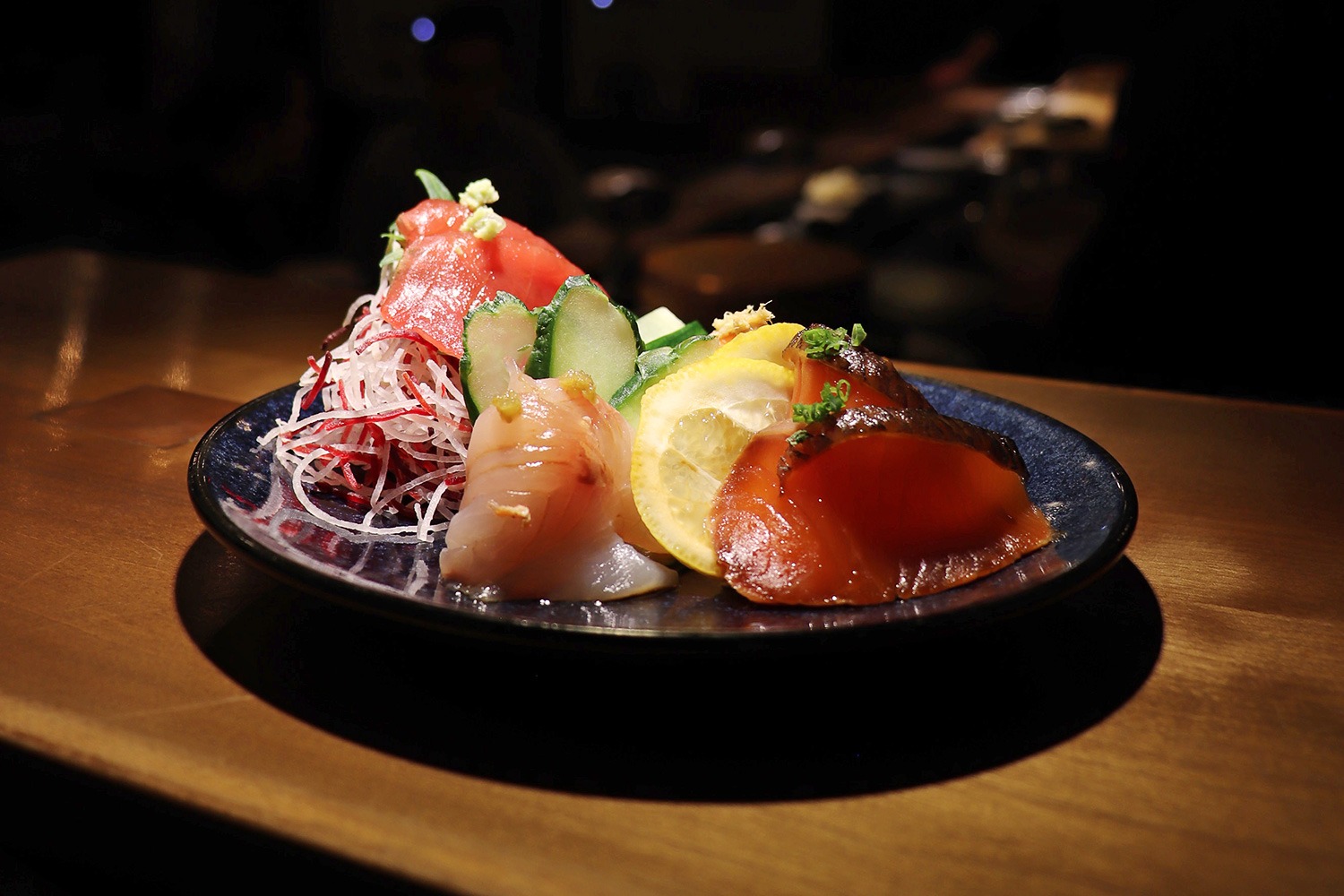For so many food businesses, COVID proved that necessity is the mother of invention. At the West Loop’s CH Distillery (564 W. Randolph St.), this meant an interesting pivot toward, of all things, high-end sushi, and the bar/restaurant’s omakase efforts continue to this day. Now, a bunch of exciting changes are coming to CH’s sushi program, including a new name, new spaces, and a ton of new offerings.
CH General Manager Tony Frausto laughs ruefully as he describes his early days at the company. After running restaurants in Denver for seven years, the Chicago native moved back to work at CH on March 5, 2020, a week before lockdown. While, like all restaurants, CH did all sorts of things to stay alive (takeout, grill window, selling hand sanitizer), a chance back porch meeting led Frausto to change the restaurant forever. A chef neighbor was keeping himself afloat during COVID by delivering high-end sushi platters to people’s houses. Frausto offered him a spot in CH’s (now mostly empty) kitchen, and Jinsei Motto, which earned a spot on our 2022 Best New Restaurants list, was born.
Fast forward five years, and the original sushi chefs have moved onto their own ventures, but the restaurant, which has rebranded as “Joto,” is going strong. The focus of the program is dry-aged fish; CH has three dry-aging machines going full time. They transform the texture of tuna, salmon, mackerel, and allow for flavors that diners aren’t familiar with. “All the moisture comes out of the fish, and it becomes more delicate in texture,” explains Frausto. “The main hitters are the ora king salmon and kinmedai — once you dry age kinmedai, it melts in your mouth like butter.” You wouldn’t expect such a small restaurant to move a ton of product, but Joto is going through 250 pounds of tuna a week and is one of the largest buyers of premium fish in Chicago.
The kitchen at the revamped Joto is focusing on making the omakase and sushi offerings more seasonal. “It’s ramp season right now, so the guys are cooking down ramps and also dehydrating them into ramp salt for the fish,” explains Frausto. CH has lots of regulars (Frausto claims that there are people who have visited 40 or 50 times in a single year) so keeping the menu fresh is a high priority. They’ve also added a new selection of crudo featuring the dry-aged fish, so diners can get a taste even if they don’t do the full omakase.
One reason for the popularity is the price — Joto is one of the best omakase deals in town. During the week, a 14-course omakase is $125, and the restaurant is launching a new Monday night offering (aimed at industry folks) for just $100. Even better, if you don’t want the full formal omakase experience at the sushi bar, the restaurant will offer the same menu at any table in the restaurant. CH’s cocktails continue to be a hit as well, but Frausto won’t take the bait when I try to get him to suggest sushi pairings with Malört, which is produced by the company.
The menu changes aren’t the only new things coming to Joto. Despite the beautiful stills and copper tubing in the back room of CH Distillery, actual distilling operations moved to the company’s facility in Pilsen years ago. Now, the equipment is being removed to make way for a new private dining room and a full-sized hot kitchen, which the restaurant has never had. The omakase bar is also being expanded.
Joto means “highest quality” in Japanese, and that’s a bold claim. There’s a lot of competition for great omakase in Chicago right now, and the average diner might not expect to find a good example hiding in the back of CH. But Frausto takes that as a challenge. “Most people don’t think that a distillery would do good sushi,” he laughs. “But if you create an environment that is fun and approachable, people will come.”



